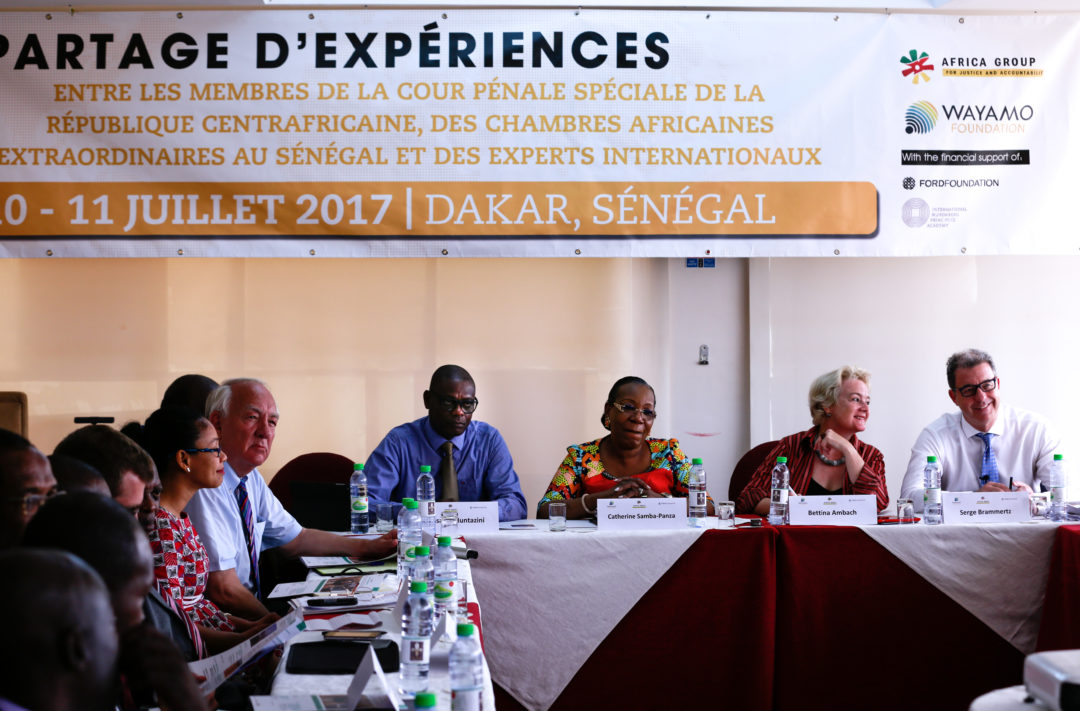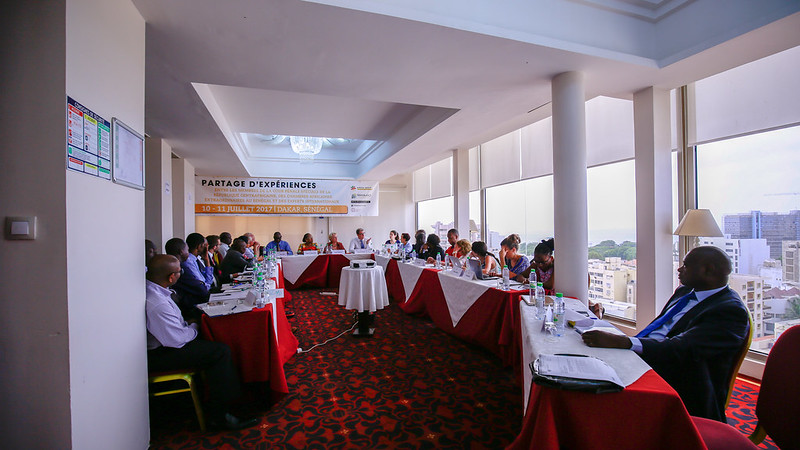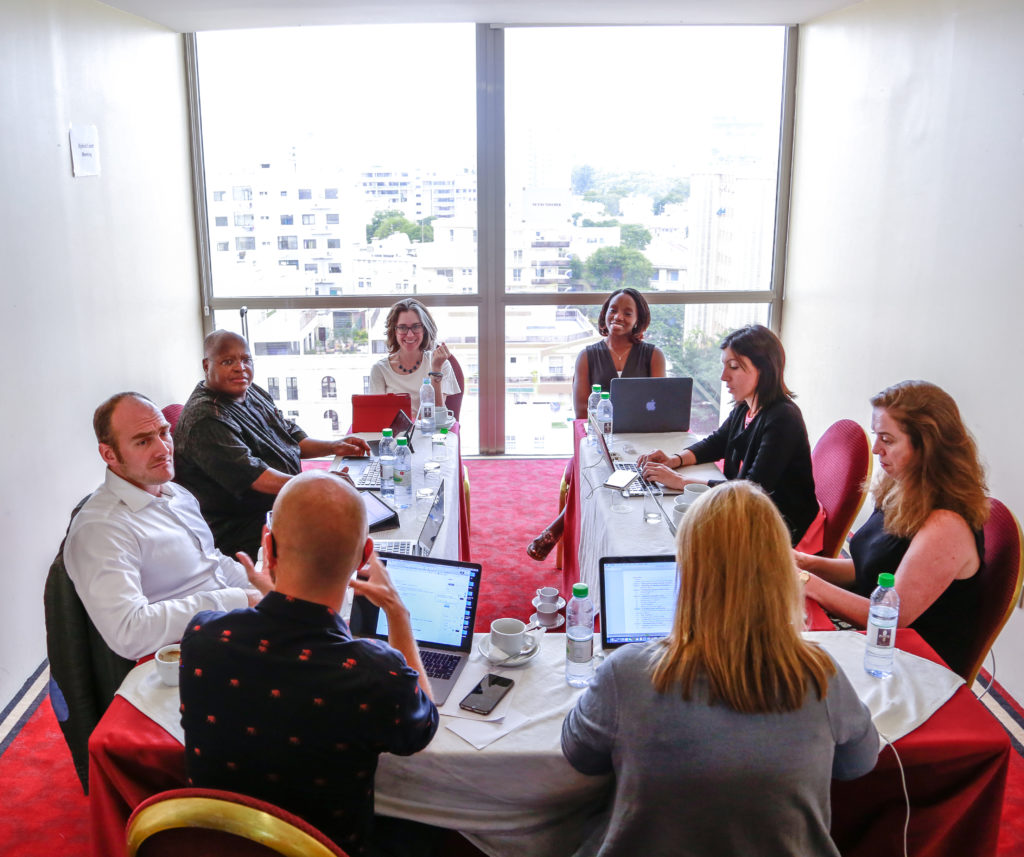As a continuation of their ongoing commitment to justice and accountability across the continent, the Wayamo Foundation and AGJA convened two additional events, following their two-day public symposium. Running from 10-11 July, the first event was a two-day training workshop (see programme) for members of the Special Criminal Court (SCC) of the Central African Republic (CAR). The event marked the first time that all the staff appointed to this new court had been brought together. Participants included the judges, prosecutor and deputy prosecutor. Over the course of the two days, members of staff were given the opportunity to learn from the experiences and lessons of colleagues from other international organisations and courts, including the Extraordinary African Chambers (EAC) which had successfully prosecuted Hissène Habré in 2016.
SCC Prosecutor, Toussaint Muntazini concluded by saying, “This is the first time that we all met together over six days of training and informal activities. It allowed us to build a team and develop a team spirit. The work during these past six days has been extremely intense and very instructive. We benefited from the experience of those who have worked in jurisdictions that preceded the SCC and, personally, I feel much stronger in the belief that many people want the SCC to succeed and are ready to support the Court in this immense and difficult task ahead.”
Former EAC Prosecutor, Mbacké Fall, added, “Today, all international criminal justice judges and prosecutors must form a network because they are part of the same family. We have each other’s contacts and will keep in touch as long as it’s necessary. This training session has been very good for us and will greatly help complementarity. The Rome Statute favours the work of national courts, inasmuch as capacity has to be given to national jurisdictions to enable them to face the challenges. Indeed, it is at the national level that we are experiencing difficulties: judges should be trained and courts should be strengthened to ensure that they are able to tackle future issues. We wish the SCC every success, particularly the Prosecutor who is the driving force behind the entire process.”
Running concurrently, the AGJA and Wayamo Foundation also convened a workshop aimed at drafting guidelines for the establishment of hybrid tribunals. The hybrid justice project is a response to the growing number of, and growing interest in, the creation of hybrid justice mechanisms as a means of addressing international crimes. Such institutions were popular in the early and mid-2000s before falling out of favour for the better part of a decade. Since 2014, however, hybrid courts have been set up to prosecute crimes in the Central African Republic as well as Kosovo. Another hybrid tribunal, the Extraordinary African Chambers (EAC), was set up in Senegal in 2013 in order to prosecute former Chadian President, Hissène Habré. The EAC successfully convicted the former leader in 2016, sentencing him to life imprisonment for atrocities committed in Chad. The bombing of Malaysia Flight MH17 in Ukraine will also be prosecuted in a hybrid court. Similar institutions have been proposed for South Sudan, Syria and Sri Lanka. The hybrid model has thus re-emerged.
Needless to say, not all hybrids are identical. In establishing guidelines, the hybrid justice project examines the various ways in which such tribunals can be hybridised, e.g., in terms of the substantive law they cover, staffing, mandate, funding, etc. Which elements are hybridised is context-driven, thus allowing the hybrid court model a degree of potential context-sensitive flexibility.
The hybrid courts project is a timely and unique initiative. Building a set of robust guidelines covering the options available to policy-makers will help legal and diplomatic actors involved in the establishment of such institutions, by providing them with tangible advice based on past experiences and lessons learnt.
The hybrid courts project is being led and organised by the Wayamo Foundation’s Deputy Director, Mark Kersten, and Dr. Kirsten Ainley of the London School of Economics. Drafters at the workshop also included Tiya Maluwa (member of the Africa Group for Justice and Accountability), Fidelma Donlon (Kosovo Specialist Chambers), Philipp Ambach (International Criminal Court) and Angela Mudukuti (Wayamo Foundation).
For more pictures, click here.




